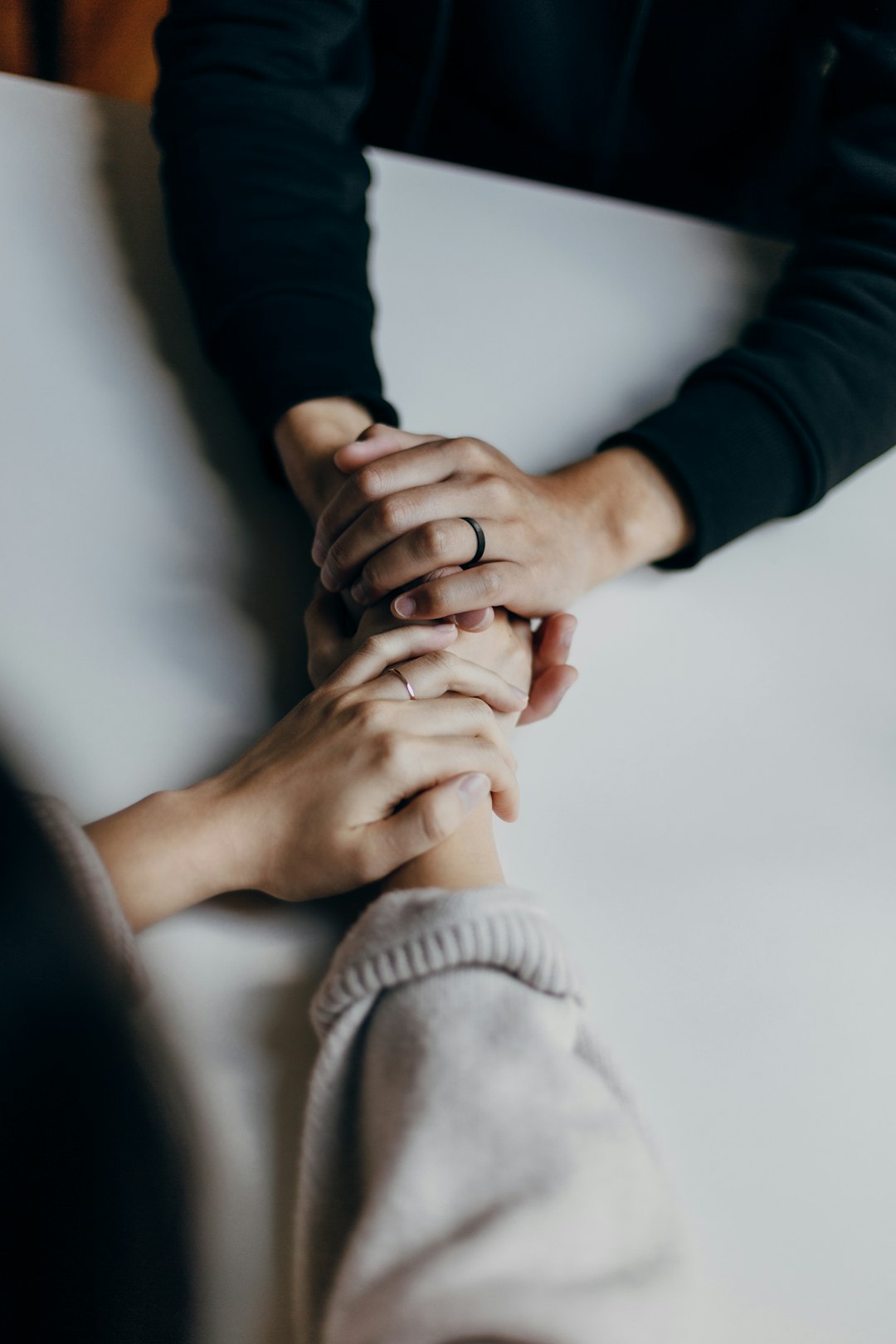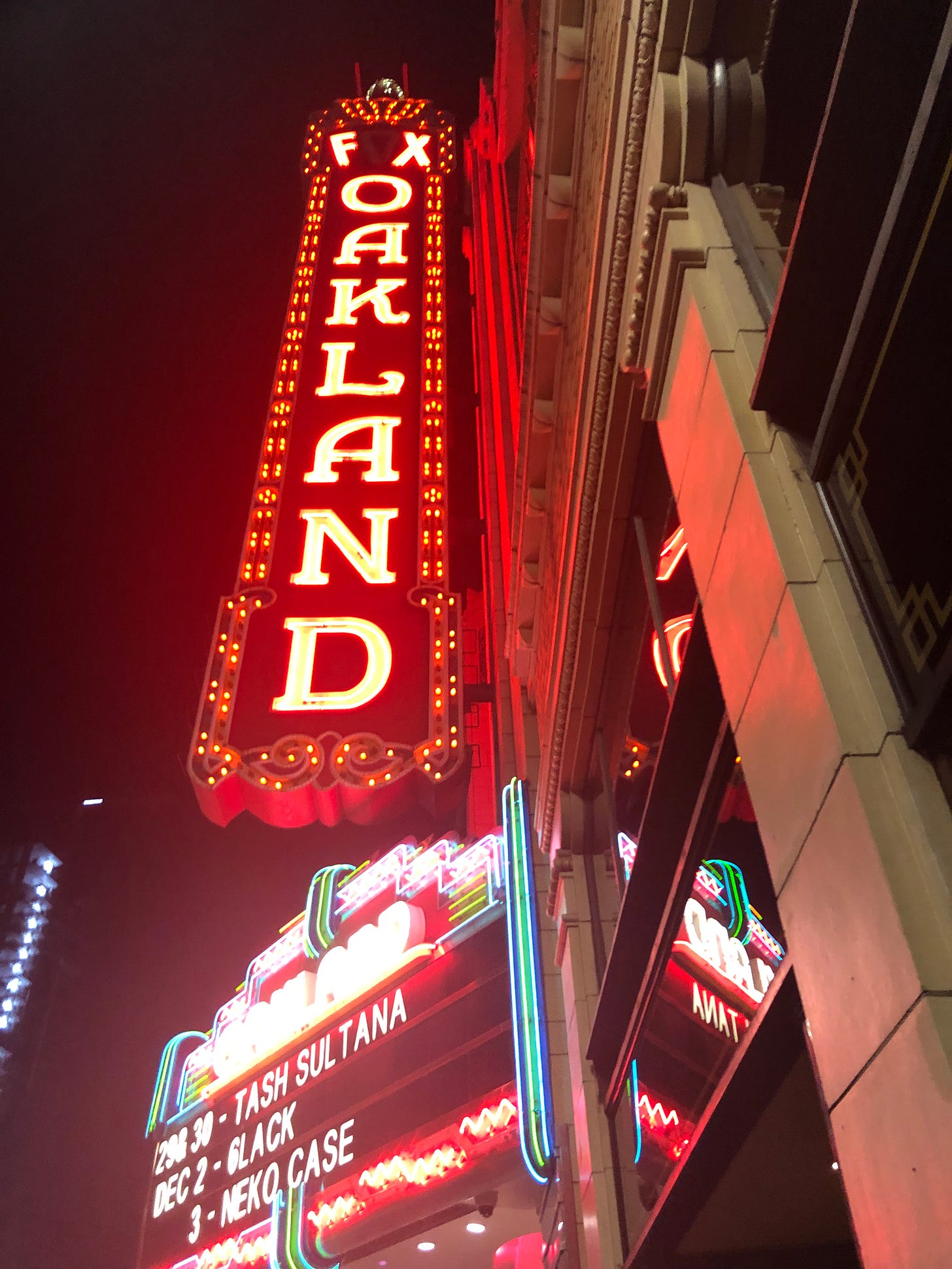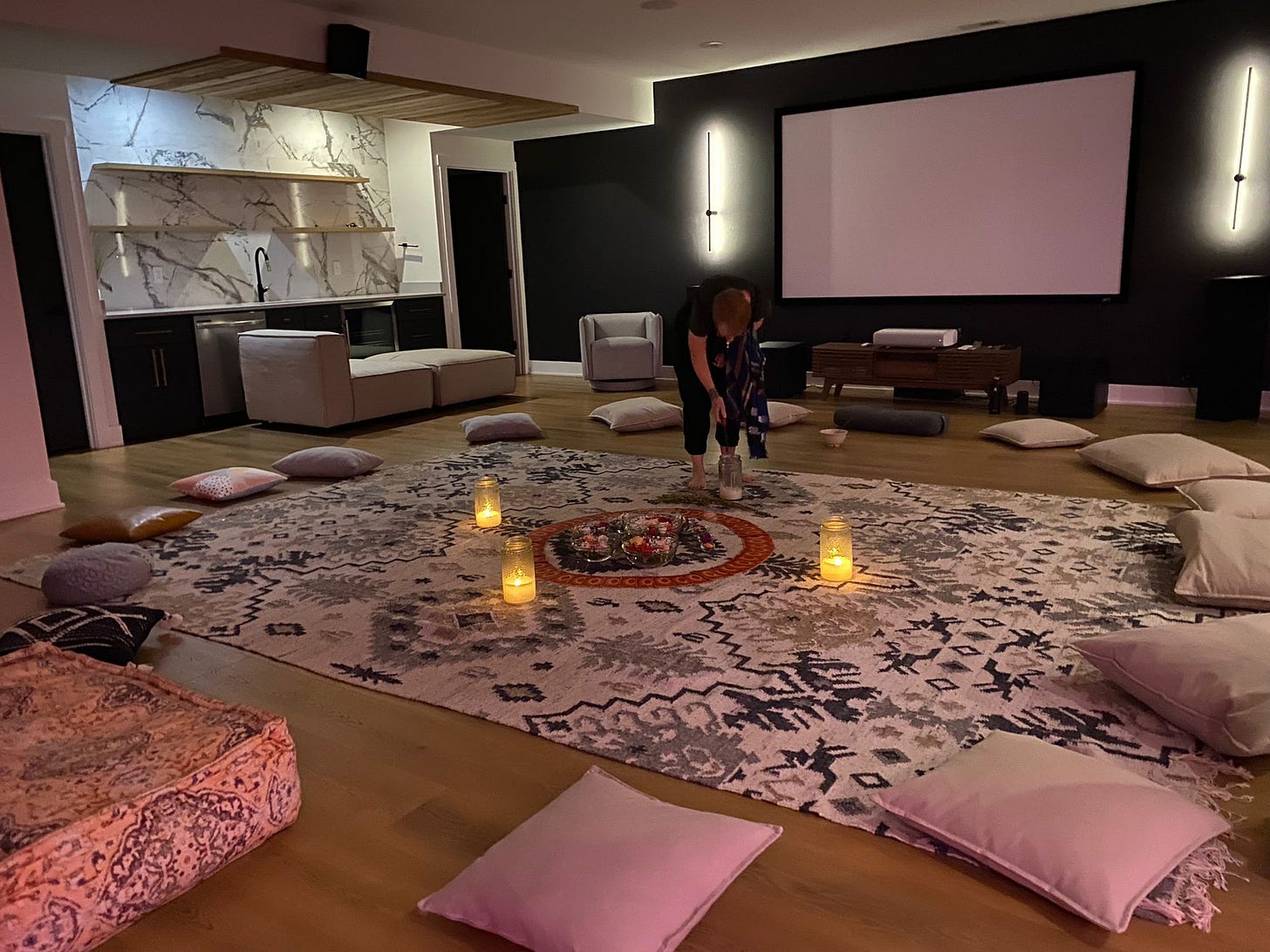Navigating Queerness and Belonging Within A Group of Women
A Vulnerable Reflection on Healing and Uncovering Wounds from a Young First Love
“Will you tell me about her?” my friend asked me as I babbled through my tears, hunched over into my hands. I had revealed to her that I had been avoiding her all weekend. I shared that I had realized that her sweet freckles and bright eyes reminded me of my first love, a female friend I could never reveal my truth to as a young teen.
We had gathered for a weekend retreat with seventeen women, and I had been invited to facilitate.
At the opening circle, I led a silent embodiment exercise where each woman got to express their internal world and emotions by letting their body take the shape of how they felt inside — adjusting as they witnessed each other's experience.
I said, “Show the part of you that wants to hide—the vulnerable emotion you don’t want others to see,” as my words guided them into the experience of revealing their inner world. As they did, I reminded them that they could choose to belong even amidst stories that they didn’t fit in — a reminder I needed to internalize as well.
Just because I was facilitating didn’t mean I couldn’t receive and heal too.
Belonging has been one of the core wounds I’ve worked with, and so often stories arise trying to convince me that “I’m on the outside” somehow.
Feeling like an outsider in a group of women, for being queer (an individual who is not heterosexual and/or does not conform to traditional gender roles), is often a story that comes up for me.
The old story I was believing went something like this:
If they know I’m queer, that makes me a threat in a group of women. If they know, it’ll make it weird. They’ll close off, and I’ll get rejected. They’ll push me away.
Being married to a man in a sexually-monogamous relationship while also being pansexual (a person who is attracted to individuals regardless of their gender identity or biological sex) has been a tough pill to swallow since getting married. Especially when attraction to a woman hits me like a tidal wave unexpectedly.
This time, the wave was brought on by a fellow facilitator who had led a frequency medicine exercise where we were guided to intuitively listen by laying hands on each other's bodies. The purpose was simply to listen and communicate love and acceptance into each other's nervous systems. I felt a very young version of myself come online, as if I were 8 years old, and I wept as the person I was paired with laid her palm in the middle of my chest.
Just before the exercise, I had been sharing a story with two of the women from a Tash Sultana concert that I had gone to (before I met Edmond) with my girlfriend.
At the concert, we had been so wrapped up in love that we were making out the entire show. It was a highlight of our love story — like two souls were colliding in the most expansive way.
And as I shared the memory, I felt my heart beaming and my cheeks flushing, remembering the passion between us.
Then the whiplash hit, and I quickly retreated into my room where I found two of my closest friends for emotional support.
With my voice shaking and tears streaming down my cheeks, I said, “They’re not going to like me anymore if they find out.”
I was swirling in the story that I might be rejected for revealing my attraction towards women, as memories from the ages of 8-14 returned to my awareness, moments of me and my first love (one of my best friends) and our adventures together while our families were at church gatherings - she and I would talk, giggle, and learn early teenage things (like French kissing in the mirror).
When our family left the church when I turned fourteen, I lost my friends, the community I had grown up in my whole life, as well as the first person I fell in love with, who never knew. I never told her.
In the Christian church I grew up in, the message was that "homosexuality meant you burn in hell." So naturally, I hid and suppressed those parts of me. "In San Francisco or Boulder, it's easy to be queer," I said to a friend as I cried into my hands. "But in the South, all these old fears of rejection and being ostracized come up again."
Throughout the three days, we each shared stories of our healing journeys. Some shared about finding meaningful work through entrepreneurship, the ups and downs of navigating motherhood in a conscious way, and the challenges of fertility treatments.
Over half of the women had experienced the grief of miscarriages, and I learned that 1 in 4 early pregnancies lead to a loss. These stories touched me so deeply as I am embarking on my own journey of creating a baby in the coming months.
The stories also brought up my buried pain around relating to other women — and the fear that I might be the outsider. The weekend showed me wounds I didn't even know were hiding beneath the surface.
I now know that as pain arises, it's coming up to be healed. And feeling is healing.
As I sat there crying in my friend's arms, I was reminded that I still carried heartbroken wounds with me, even after all these years. But I was also reminded that I am not alone, and that I don't have to carry the pain with me anymore.
By being accepted and fully feeling the emotional wave, the old wound had a chance to heal.
At closing circle, we wrote a promise to ourselves on a small piece of paper and let it burn in the bonfire - my promise "to welcome the queer, sultry, sexy one in every room I'm in."
p.s. If this piece of writing touched you in some way, just reply to this newsletter or send me a message on IG. I would love to hear from you!





So moved by this post, Kiki and your openness to reveal the complex, tender and raw parts of yourself. I felt special resonance with the underlying feeling 'that I'm the outsider' always, no matter what. Healing this narrative has been one of fiercely 'belonging to myself' first and then the delicate art of revealing my full authenticity with others. Your story has inspired me to go deeper and more fully with this 🙏❤️🌷